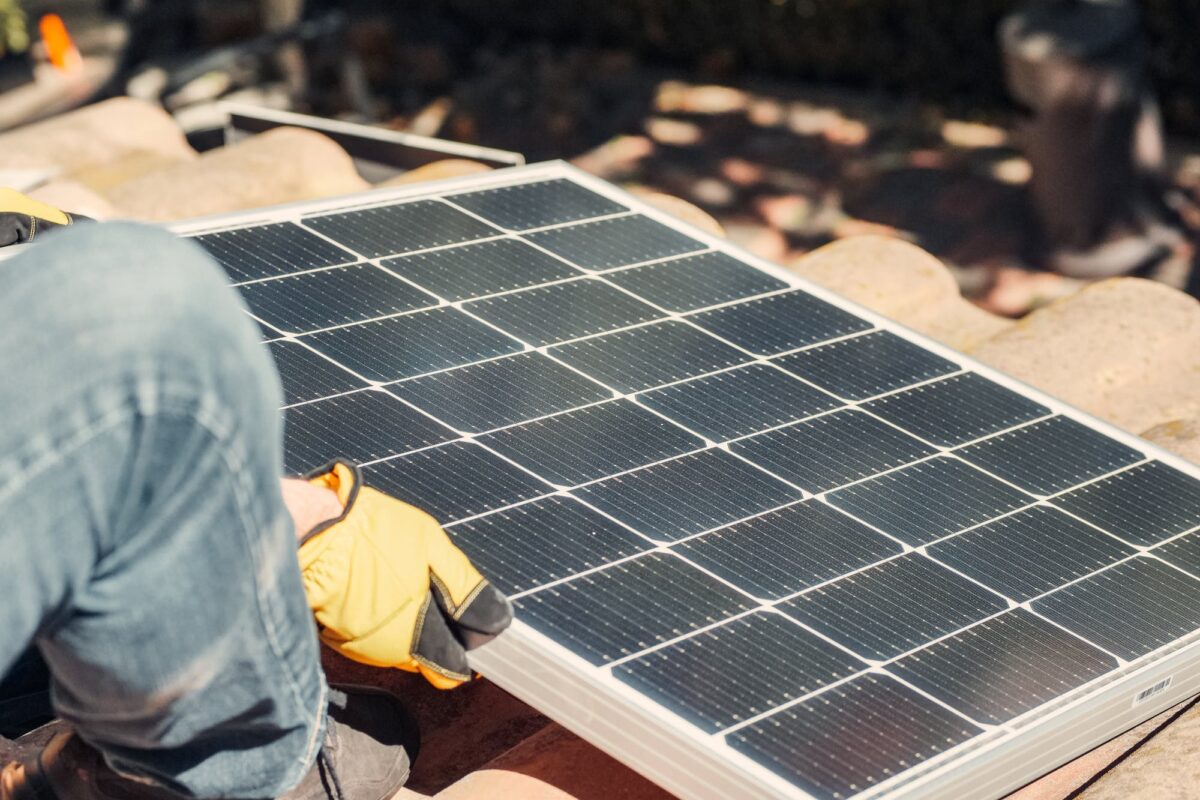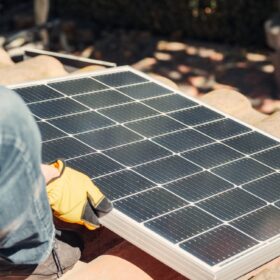Investors continue to invest and clean energy entrepreneurs continue to innovate — despite global setbacks. Here are six companies that won a total of $170 million in funding in recent days, ranging across the cleantech spectrum.
Solar sales software: Palmetto, a Charleston, S.C.-based software company focused on software for the solar sales and installation process, landed $29 million in Series B funding from investors including Evergy Ventures, Arctern Ventures, Shell Ventures, Greycroft, Lerer Hippeau, Box Group, Falkon Ventures and the Leto Family Office. Greycroft led Palmetto’s Series A round in 2018.
Palmetto’s software and fulfillment platform pairs homeowners with solar power and energy storage providers and looks to improve the ease of financing and installation. Last year, Energy Impact Partners provided $20 million in finance facilities to the firm. Former NBA Commissioner David Stern invested in the company in 2018.
Will Szczerbiak, a principal at Greycroft and Palmetto board member, told pv magazine that the company “partners with the sales side and the build side. The salesperson books the contract using Palmetto’s software, which allows them to generate a proposal, shows financing options and can be used for lightweight CRM. It manages communications with the customer, permitting and schedules and manages the project.”
Residential flow battery: Munich-based residential vanadium redox flow battery start-up VoltStorage has secured another $7 million from investors including the Bayern Kapital subsidiary of the development bank of Bavaria; family investment house Korys; the EU-backed EIT Innoenergy, New Jersey-based venture capital fund and seed investor SOSV and Zurich power company Energie 360.
The firm claims its flow battery system can complete more than 10,000 charge cycles without any effect on capacity and says its electrolyte is a recyclable, non-flammable vanadium solution. VoltStorage’s modular unit reportedly offers a continuous power rating of 1.5 kW and nominal energy of 6.2 kWh. The unit comes with a ten-year warranty.
Flow batteries circulate a liquid electrolyte through stacks of electrochemical cells and have long held the promise of 10-hour duration, tens of thousands of cycles, minimal degradation and no limitation on depth of discharge. That performance promise has lured venture capital investment and R&D but, thus far, the support has yielded few competitive commercial flow batteries. More details here.
Wireless energy monitor: Carolin Funk of Blue Bear Capital is now a board member and investor at Copper Labs, a wireless energy monitor that delivers real-time data from electric, gas and water meters. Copper Labs has received approximately $3 million in seed funding from investors including Moonshots Capital and Tahoma Ventures.
EV charging: ChargePoint raised $127 million in its most recent tranche of equity funding to build a U.S. and European EV charging network. The round brings ChargePoint’s total funding to $660 million from investors including American Electric Power, Braemar Energy Ventures, Canada Pension Plan Investment Board, Chevron Technology Ventures, Clearvision, GIC, Linse Capital and Quantum Energy Partners. ChargePoint’s network is one of the largest EV charging systems in the world with 114,000 charging points in Europe and America.
Residential solar finance: Solfácil, a solar power fintech startup in Brazil, raised $4 million in a Series A investment round led by Valor Capital Group. CEO Fabio Carrara told LABS that the company is “a traditional credit operation.” Solfácil reaches the customer through a partnership with the installer and finances the customer to buy the system from that company. Solfácil not only evaluates the credit but also the project proposed by the company for the client. According to the CEO, in general, a solar energy system gives a return on invested capital over ten times the current savings accounts in Brazil, with interest rate of 2.25% per month. Source: Reporting of Isabela Fleischmann do Amaral at LABS.
Image analysis for powerline and grid inspection: Buzz Solutions, a StartX accelerator startup, raised $1.2 million to perform image analysis and quickly provide actionable reports in a matter of hours or days, compared to the months it takes utilities now when the work is performed by engineers. The platform can save utilities 50% to 70% in costs. The seed round was led by Blackhorn Ventures with participation from Ulu Ventures, Vodia Ventures, and Advisors.fund. The company’s technology is already being used in pilot projects at a southern California utility, a Midwest utility, and two New York utilities. The platform uses AI and machine vision technology to analyze hundreds of thousands of images taken by drones, helicopters, and aircraft of powerlines and towers to find dangerous faults, flaws and overgrown vegetation.
This content is protected by copyright and may not be reused. If you want to cooperate with us and would like to reuse some of our content, please contact: editors@pv-magazine.com.








By submitting this form you agree to pv magazine using your data for the purposes of publishing your comment.
Your personal data will only be disclosed or otherwise transmitted to third parties for the purposes of spam filtering or if this is necessary for technical maintenance of the website. Any other transfer to third parties will not take place unless this is justified on the basis of applicable data protection regulations or if pv magazine is legally obliged to do so.
You may revoke this consent at any time with effect for the future, in which case your personal data will be deleted immediately. Otherwise, your data will be deleted if pv magazine has processed your request or the purpose of data storage is fulfilled.
Further information on data privacy can be found in our Data Protection Policy.